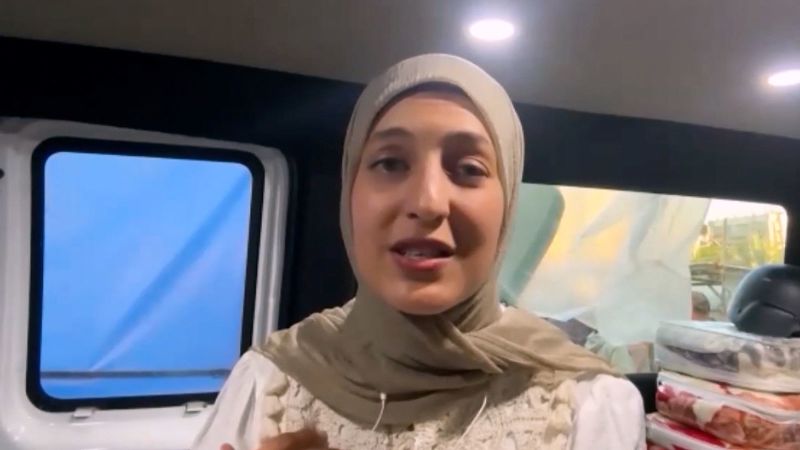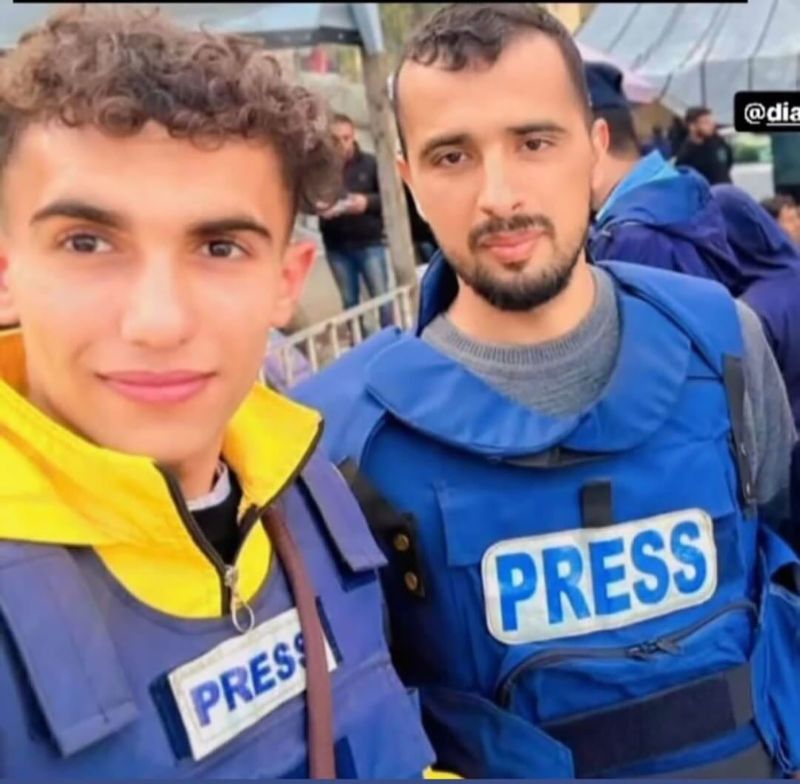This Palestinian reporter fled Gaza for her children's safety. Now, she says she lives with survivor's guilt
Al Jazeera English correspondent Youmna ElSayed appears on CNN on Monday, October 7, CNN
It’s been 10 months since Al Jazeera English correspondent Youmna ElSayed fled Gaza, and she said it was “one of the most difficult decisions” even as it was the “only choice” she had to save her children.
“My greatest fears were always that my children at home are not safe, and I could lose them in any air strike,” she told CNN.
“I was forced to leave because I was left with no other choice to protect their lives. I was threatened more than once I was displaced over six times. Life was getting incredibly more and more challenging every single day,” she explained.
She now lives in Egypt, where she said life hasn’t been easy as she struggles with survivor’s guilt. “It has impacted me a lot physically and emotionally, mentally,” she said.
ElSayed criticized the underreporting of the devastation in Gaza, and pointed that the public has started seeing the situation because they follow Palestinian journalists and Gaza residents who are “documenting these war crimes that they are subjected to.”
She described meeting a child at Nasser Hospital in Khan Younis who was carrying a backpack close to his chest. “He asked me, ‘do you know what’s in my backpack?’ And before I can answer, I see blood under the backpack. Just like that, scenes of blood. And I just know inside what I’m expecting to see. I know what he’s trying to tell me.”
It was his 5-year-old brother, she told CNN. “I didn’t have the courage to document that,” she said.
“I felt for quite some time guilty that I was not brave enough to document it,” she said. “I let him down because I did not react quickly and document that. I blamed myself for days. And this has been 10 months ago, and I can’t get over it, and I will never get over it.”
As she reflected on a year of war in Gaza, she said life in Gaza before October 7 “wasn’t normal anyway.”
“We had no opportunities to travel, to plan a simple vacation like any family in the world, even if we had the financial means. If someone got sick, we weren’t sure if we could be able to take this person to lifesaving treatment somewhere else, or he would die in Gaza,” she said, placing responsibility on western governments and lawmakers — not the people — for “double standards” on the Israel-Gaza issue.
Palestinian teen who became a journalist to document Israel’s offensive killed in northern Gaza

Hassan Hammad, left, and Ismail Al Ghoul, an Al Jazeera correspondent who was killed in an Israeli strike in July
When he was younger, 18-year-old Hassan Hamad dreamed of being a doctor when he grew up, according to his brother Mohammad. But the October 7 attacks last year and the ensuing war in Gaza made him want to become a journalist instead.
After months of documenting Israel’s offensive in his home territory, the 18-year-old reporter was killed when his family’s apartment was hit in an Israeli missile attack in Jabalya refugee camp in northern Gaza on Sunday, according to witness testimony and footage shared with CNN.
“I couldn’t imagine that Hassan had been torn apart and that his body had been reduced to remains. I saw part of his hair with his curls, and I knew he was gone,” said 25-year-old Mohammad Hamad, who was also injured in the strike.
In the aftermath of the assault, Mohammad recalled trying to recover Hassan’s scattered body parts. “My father, our neighbor, and I collected four kilograms (nine pounds) of his flesh… My father buried Hassan’s remains in the garden until we could collect the rest,” he said.
“I feel so much guilt because I opened the door (to my apartment) for him. I shouldn’t have opened it,” Mohammad said, adding that they were just two meters (about six and a half feet) from each other when the strike happened.
“Hassan was very brave. He wanted the world to see what was happening in northern Gaza, and he insisted on doing the job even though many of his colleagues were killed,” Mohammad added.
Israel’s military campaign in Gaza has killed a record number of journalists, according to the Committee to Protect Journalists (CPJ), which reported on Friday that at least 128 journalists and media workers — mostly Palestinian — have been killed.




















